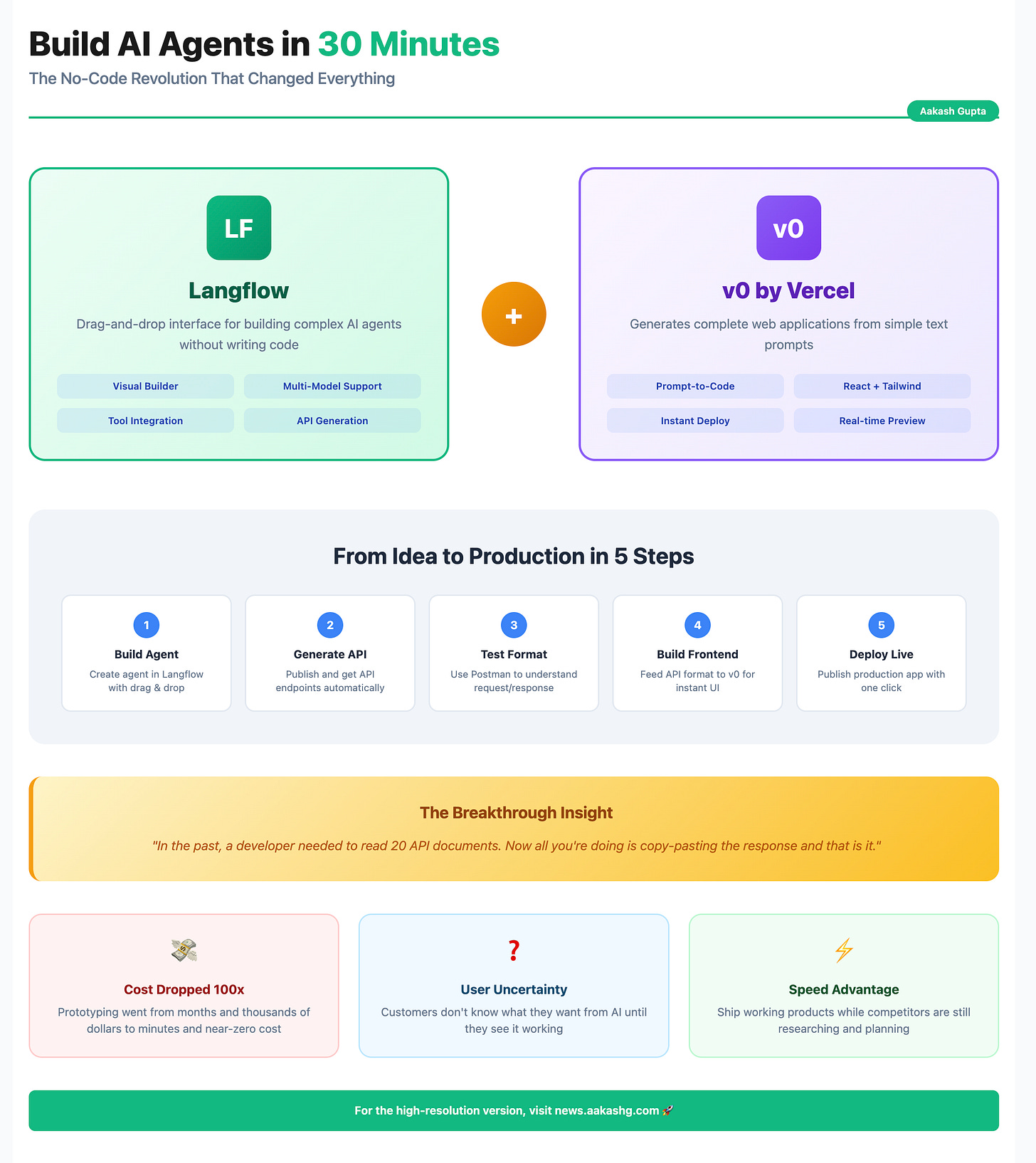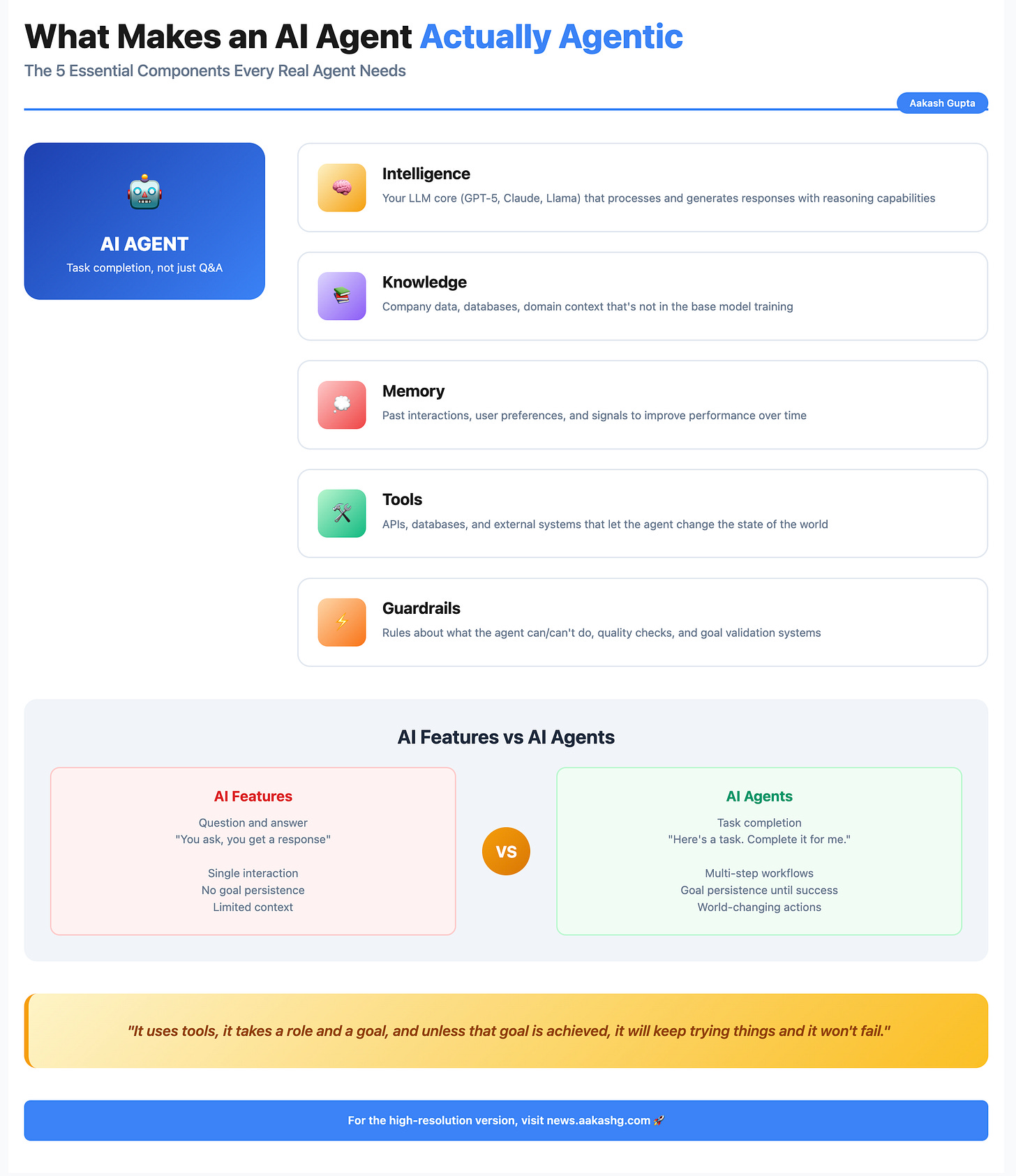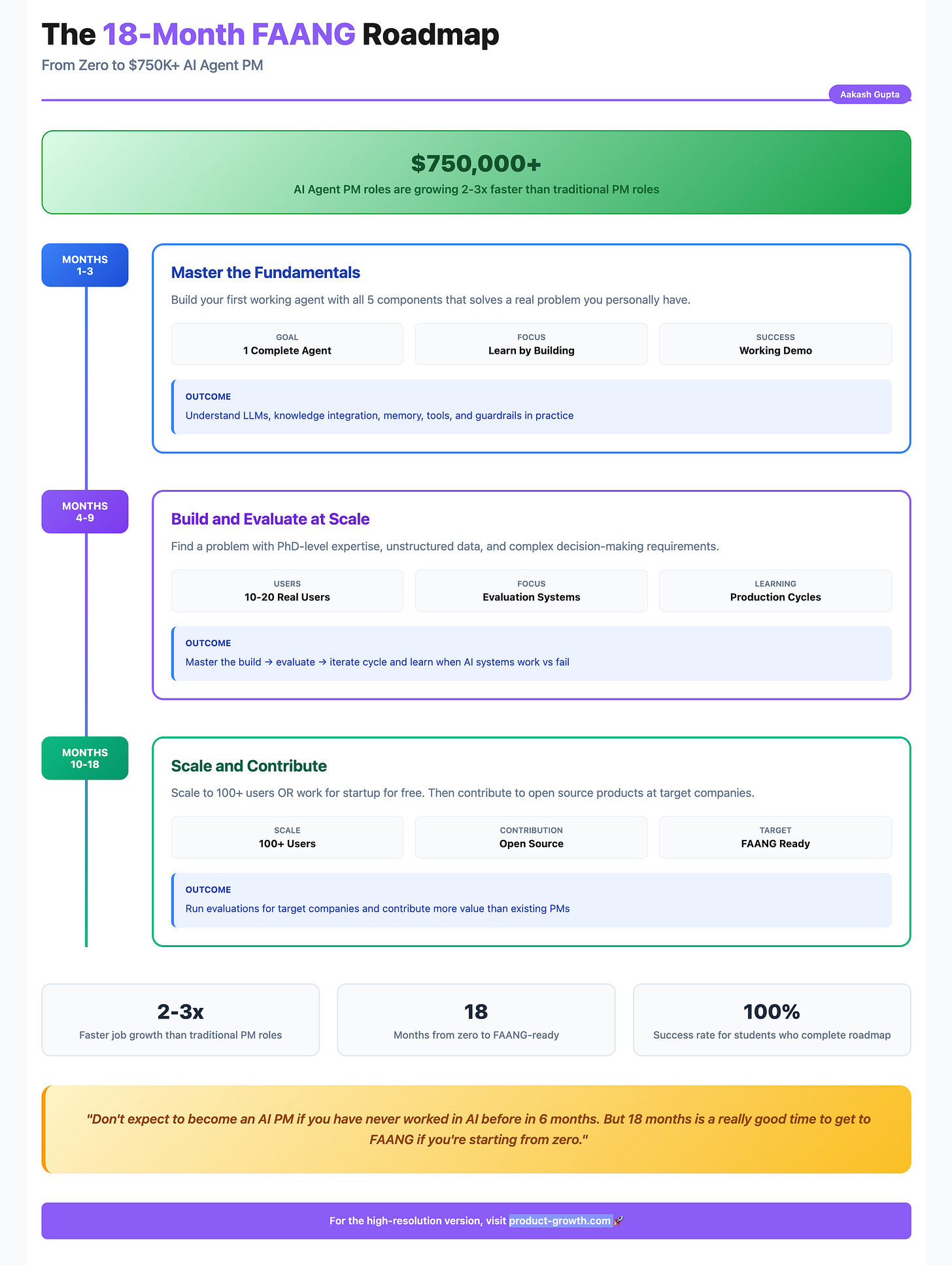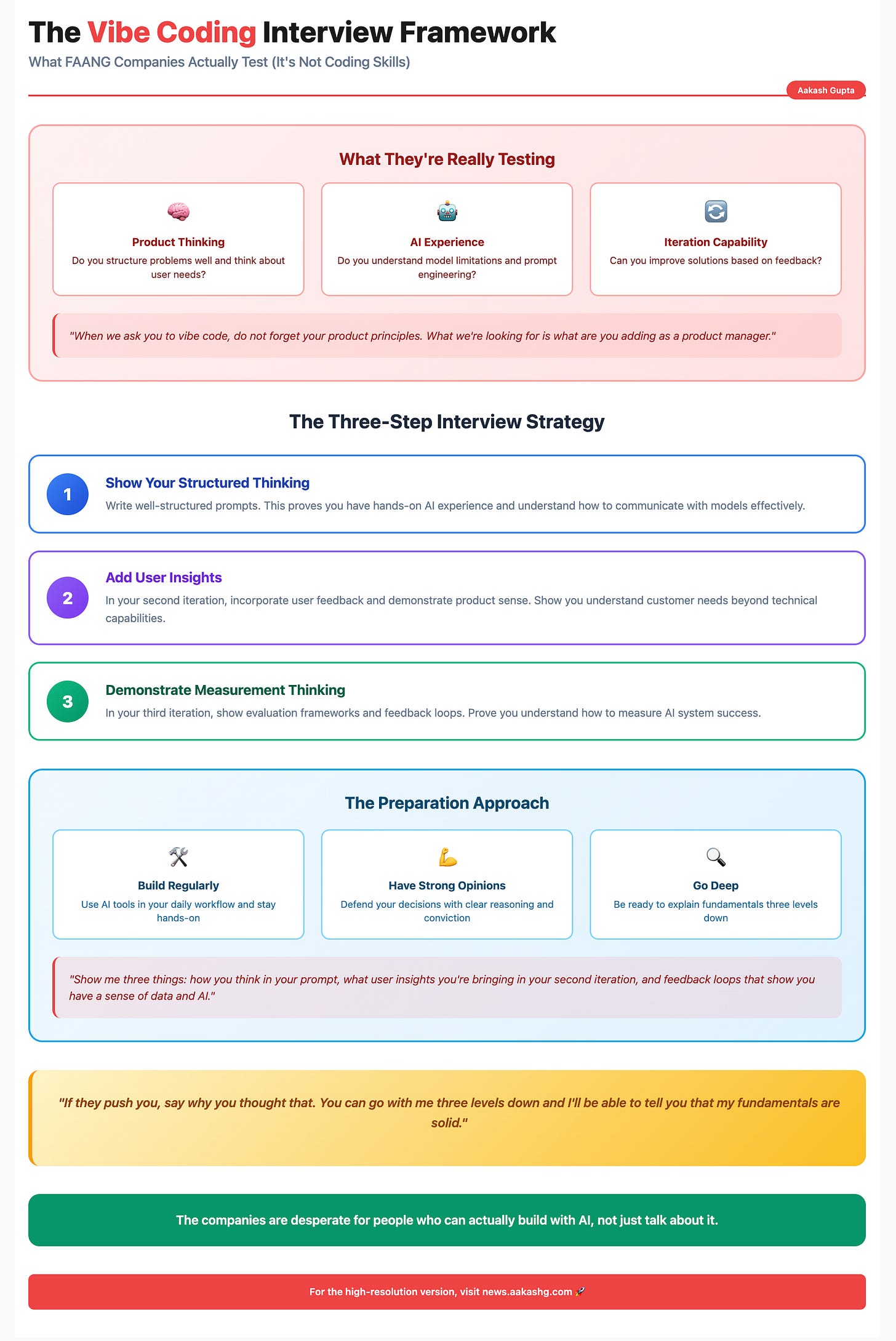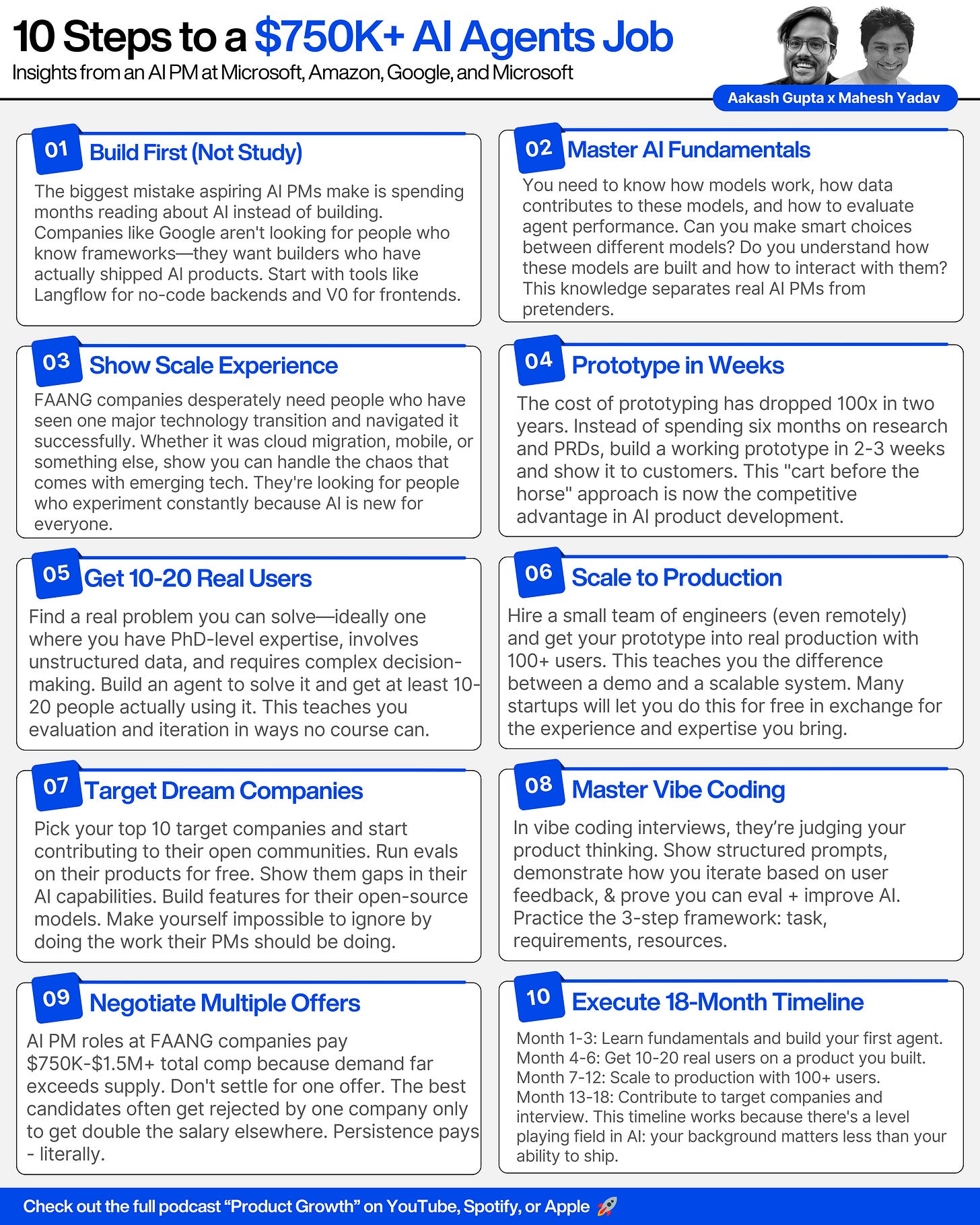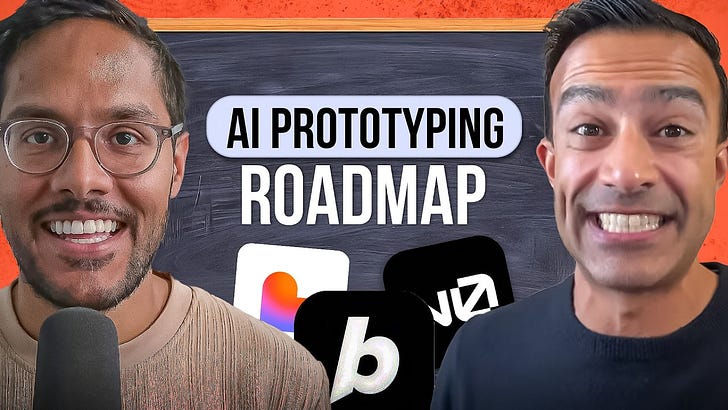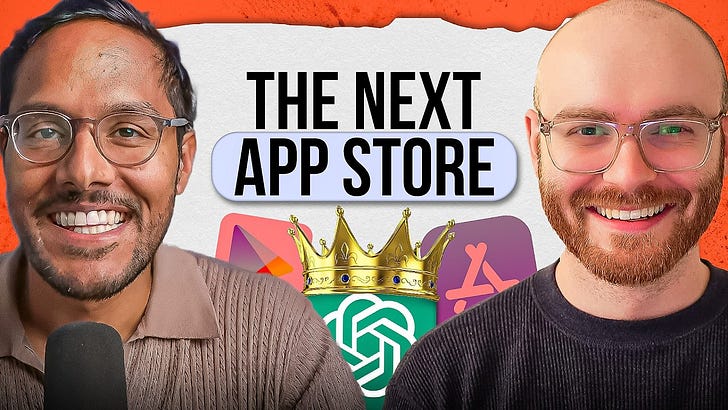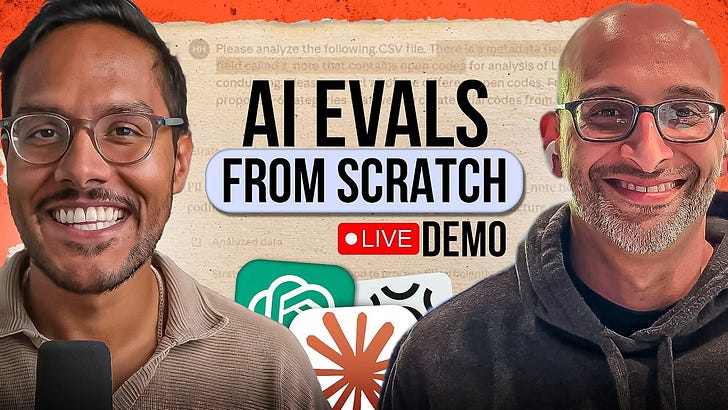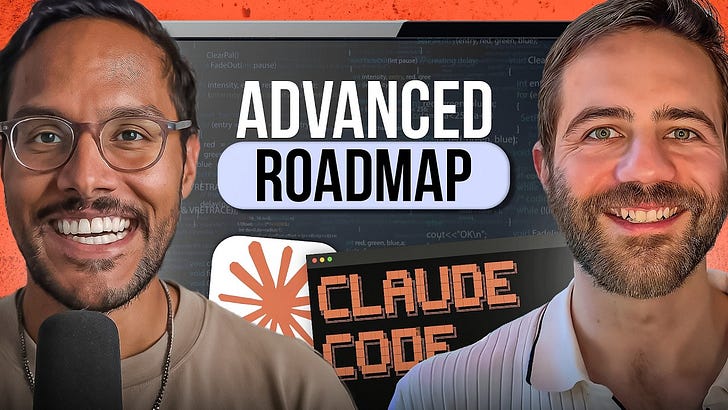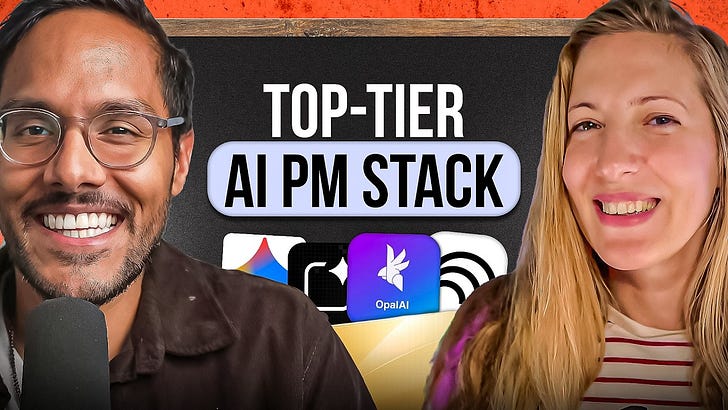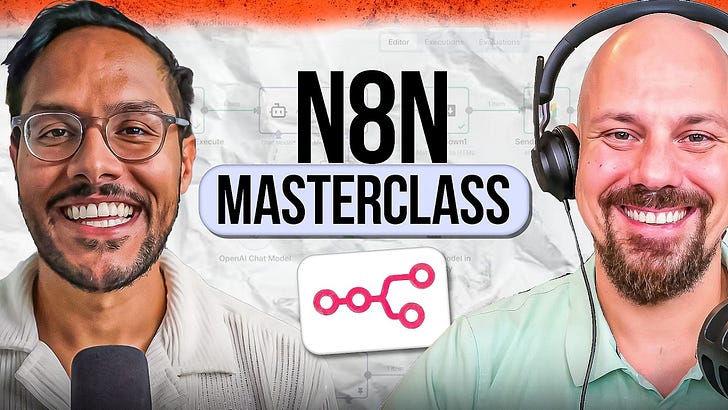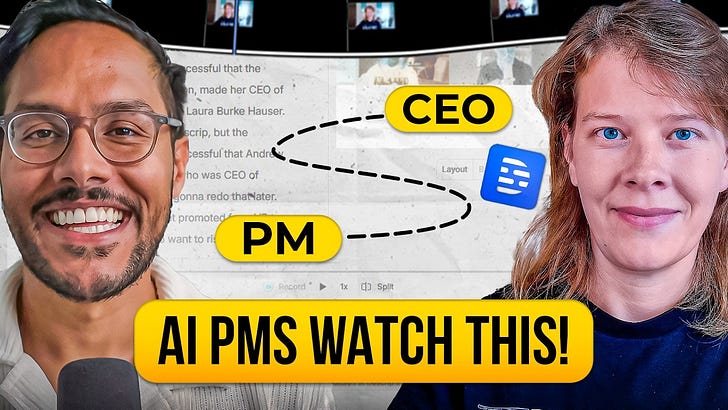Check out the conversation on Apple, Spotify and YouTube.
Brought to you by:
Maven: Get $300 off Mahesh’s course with my code AAKASHxMAVEN
Kameleoon: Leading AI experimentation platform
The AI Evals Course for PMs: Get $1155 off with code ‘ag-evals’
Amplitude: The market-leader in product analytics
Today's Episode
AI agent PM roles are the fastest-growing, highest-paid positions in tech. These jobs pay $750K+ and are growing 2-3x faster than traditional PM roles.
But most people don't know how to actually build AI agents. They think it's just ChatGPT with a fancy interface.
Today I sat down with Mahesh Yadav, who's worked as a PM at Meta, Amazon, Microsoft, and Google. He's built AI agents at scale for 8+ years and now teaches hundreds of PMs at top companies.
He breaks down the exact playbook - how to build agents, the 18-month roadmap to $750K+ roles, and what FAANG companies look for in vibe coding interviews:
Your Newsletter Subscriber Bonus
For subscribers, each episode I also write up a newsletter version of the podcast. Thank you.
We've put together the ultimate guide to becoming an AI Agent PM:
How to Build Your First AI Agent in 30 Minutes
The 18-Month Roadmap to a FAANG Job
How to Ace Vibe Coding Interviews
(By the way, we’ve launched our podcast clips channel, so don’t miss out: subscribe here.)
1. How to Build Your First AI Agent in 30 Minutes
1a. The No-Code Revolution
Mahesh demonstrated building a complete competitive analysis agent in under 30 minutes using two tools:
Backend: Langflow - Drag-and-drop interface for complex agents
Frontend: v0 - Generates web apps from text prompts
1b. What Makes It Actually Agentic
This is the difference between AI agents and features:
AI Features: Question and answer ("You ask, you get a response")
AI Agents: Task completion ("Here's a task. Complete it for me.")
Every real agent needs five components:
Intelligence: Your LLM (GPT-5, Claude, etc.)
Knowledge: Company data not in the model
Memory: Past interactions to improve over time
Tools: APIs that change the state of the world
Guardrails: Rules about what it can and can't do
1c. From Demo to Production API
Here's Mahesh's process to go from prototype to real product:
Build your agent in Langflow with proper inputs/outputs
Use "Publish" to generate API endpoints
Test the API in Postman to understand request/response
Feed that format to v0 to generate production frontend
Deploy and iterate
The game has changed. You can now build end-to-end AI products in hours, not months.
2. The 18-Month FAANG Roadmap
2a. Months 1-3: Master the Fundamentals
Don't expect to become an AI PM if you have never worked in AI before in 6 months. But 18 months is a really good time to get to FAANG if you're starting from zero.
Your first milestone: Build a working agent with all five components that solves a real problem you have.
Success metric: You understand LLMs, knowledge integration, memory, tools, and guardrails in practice
Outcome: One complete agent demonstrating you can build, not just talk about AI
2b. Months 4-9: Build and Evaluate at Scale
Find a problem with three characteristics:
You have deep expertise in the domain
It involves unstructured data
It requires complex decision-making
Your goal is to get 10-20 real users on your solution. Why? You’ll learn how to evaluate AI systems in production. There’s no better way to grok the build → evaluate → iterate cycle.
This teaches you the hardest part of AI PM work: knowing when your agent is working versus failing.
2c. Months 10-18: Scale and Contribute
Take your solution to 100+ users OR work for a startup for free to get production experience.
Then start contributing to open source versions of products at companies you want to join:
Run evaluations for them free. By this time you should have your evaluation frameworks and you're telling them what their gaps are.
You’ll get jobs because you’re contributing more value than existing PMs.
3. The Vibe Coding Interview Framework
3a. What They're Really Testing
When we ask you to vibe code, do not forget your product principles. What we're looking for is what are you adding as a product manager.
FAANG companies use vibe coding interviews to evaluate AI PMs. They're not testing your coding skills - they're testing 3 things:
Product thinking: Do you structure problems well?
AI experience: Do you understand model limitations and prompt engineering?
Iteration capability: Can you improve solutions based on feedback?
3b. The Three-Step Interview Strategy
Step 1: Show Your Structured Thinking
Write well-structured prompts. This proves you have hands-on AI experience.
Step 2: Add User Insights
In your second iteration, incorporate user feedback. This demonstrates product sense.
Step 3: Demonstrate Measurement Thinking
In your third iteration, show evaluation frameworks. This proves you understand AI systems.
3c. The Preparation Approach
Build regularly: Use AI tools in your daily workflow
Have strong opinions: Defend your decisions with clear reasoning
Go deep: Be ready to explain fundamentals three levels down
If they push you, say why you thought that. You can go with me three levels down and I'll be able to tell you that my fundamentals are solid.
The companies are desperate for people who can actually build with AI, not just talk about it.
Key Takeaways
Where to find Mahesh Yadav
Related Content
Podcasts:
Head of Integrity Product at OpenAI: Future of AI Agents
Head of AI at IBM: AI Agents for PMs in 69 Minutes
Lindy CEO: 5 AI Agents Every PM Should Build
Newsletters:
P.S. More than 85% of you aren't subscribed yet. If you can subscribe on YouTube, follow on Apple & Spotify, my commitment to you is that we'll continue making this content better.


